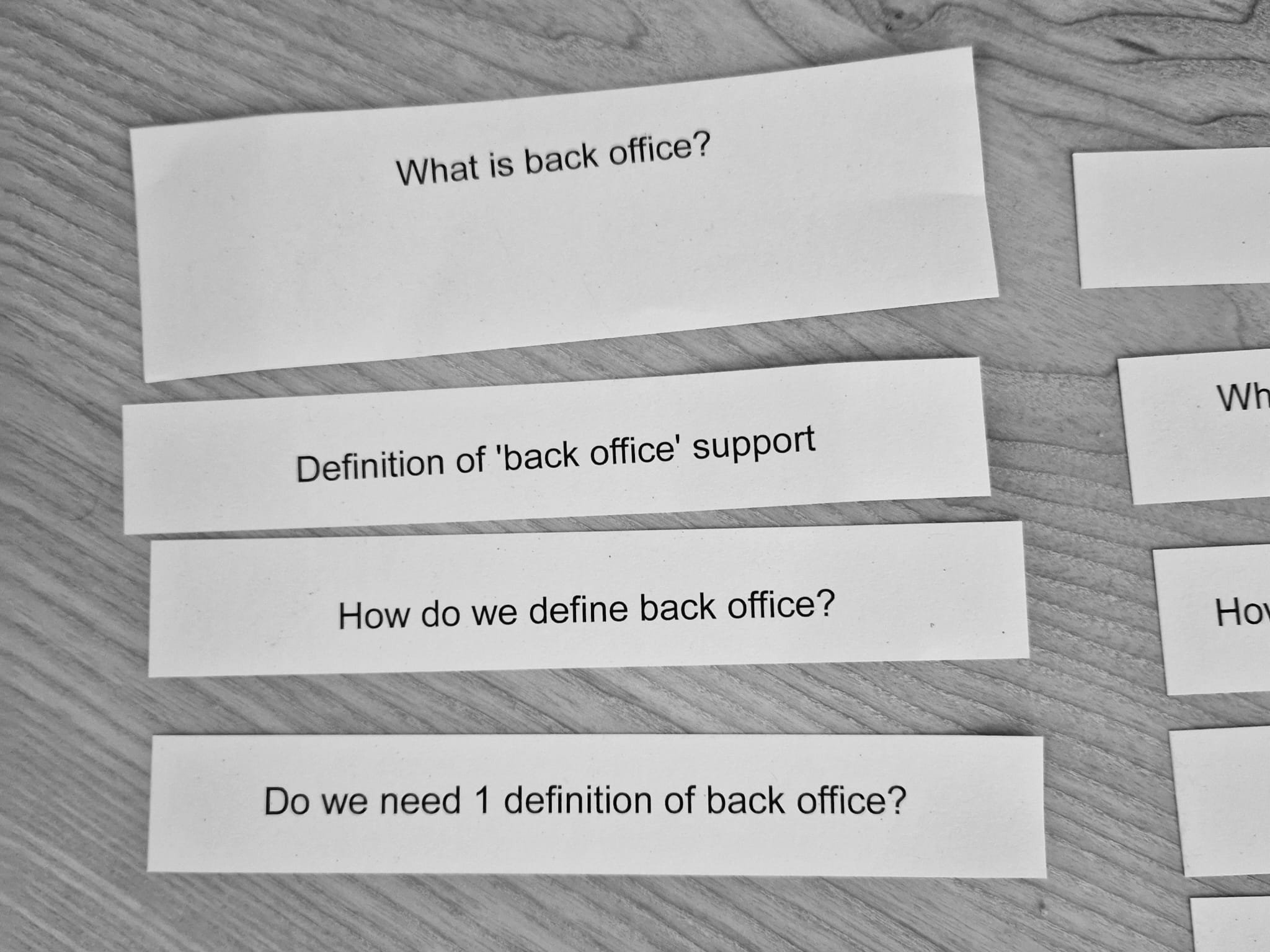What questions do you need answers to?
Here are four of the 100 or so questions we had at the start of the sprint process.
Continuation from- Reflections on a sprint funding process: The Facilitator. The Group. The People. & Me.
Turning up on the first day with this bold idea but no idea of what is going to happen - was scary to me - and I didn’t have to participate, really.
That's how the philanthropic sprint began - 1.5 million pounds out the door in six weeks.
Real questions...
Instead of immediate answers, we started with something more powerful: questions. Lots of them. Every person brought their wonderings, their concerns, their curiosities to the table.
The first invitation was simple: "What questions do you need answers to?"
No question was too big or too small. Some were practical, some philosophical, some seemingly impossible to answer. But together, they created something remarkable - a framework built from curiosity rather than certainty. It wasn't about having the right questions, but about having real ones. Questions that mattered.
More questions...
These questions haven't just sat on a shelf. They've become a compass, the building blocks, and the checking points. We've shaped them, ordered them, returned to them again and again. Sometimes they change. Sometimes they lead to new questions. Sometimes we find answers that create even more questions. This constant revisiting kept us honest, kept us focused, kept us moving toward the goal in ways that challenged old patterns and created new possibilities.
Are there other ways you have supported people to let it all out, to show where they are at, at the start of a process?
To return to the first blog in this series please click here - Reflections on a sprint funding process: The Facilitator. The Group. The People. & Me.

